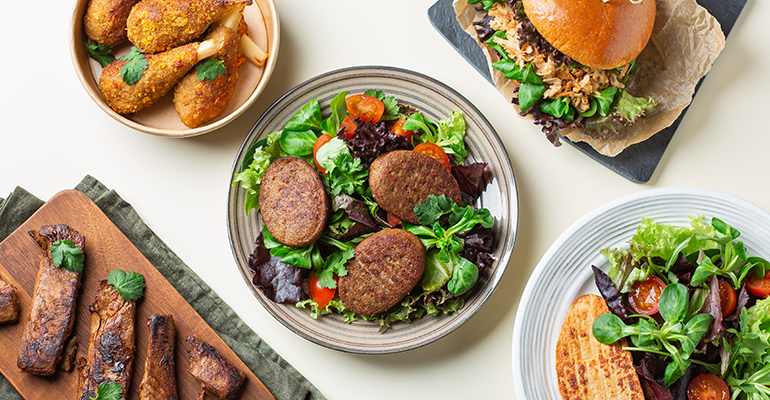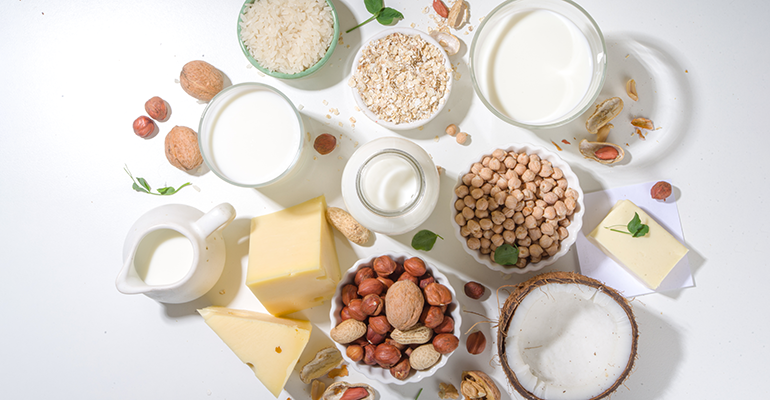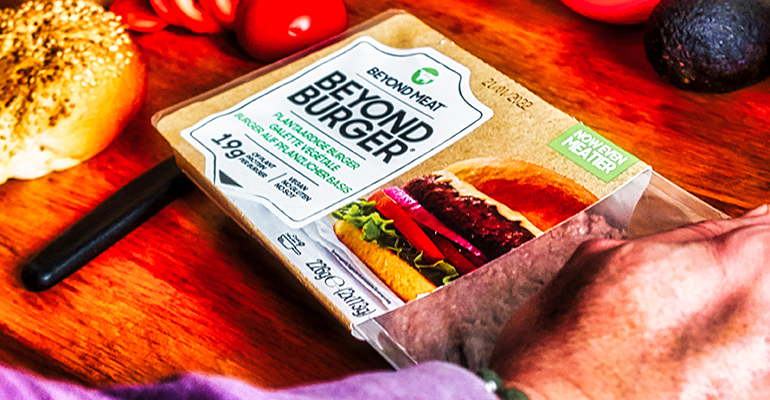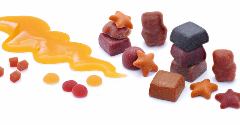News
European Court of Justice to weigh in on French plant-based name ban
23 Aug 2023
France’s Conseil d’Etat has asked the European Court of Justice’s (ECJ) to provide clarification on whether the upcoming French law to ban the use of 'meaty' terms for plant-based foods is valid. “This is a pivotal moment, not just for France, but for the EU as a whole,” say plant-based stakeholders.
France is due to soon become the first country in the European region to ban words like steak, bacon or sausage to describe foods of plant origin.

A French decree, introduced in 2020 and published in June of this year, will come into effect in October and follows the adoption of the law on “transparency of information on agricultural and food products” in 2020.
However, in an unprecedented move, France’s Conseil d’Etat (Council of State) is seeking clarification from the ECJ over this possible ban of meat-based terms, a move supported by plant-based stakeholders.
“We welcome the Conseil d’Etat’s decision to ask the European Court of Justice for clarification on food labelling,” said Élodie Blanchard, president of the Association Végétarienne de France – the Vegetarian Association of France, or AVF. “This is a pivotal moment, not just for France but for the EU as a whole.
The AVF is part of a consortium of pro-vegetarian groups that includes the European Vegetarian Union (EVU) and that is behind efforts to bring this case to the ECJ’s attention, aided by France’s Conseil d’Etat.
The ECJ is expected to answer a series of key questions before the Conseil d’Etat can pursue its ruling. These questions concern the use of terms for food products containing plant proteins and their potential impact on consumer understanding.
“This is a litmus test for the rights of consumers who are looking for more responsible and conscious choices,” said Blanchard.
“In a context of ecological urgency, and climate change in particular, the French government is expected to avoid creating obstacles to the transition towards more sustainable food systems, and to refrain from bowing to pressure from the livestock lobbies.”
Ronja Berthold, policy manager at the EVU, said: “It’s crucial to ensure that consumers have accurate and transparent information about the products they purchase, especially as the demand for plant-based alternatives continues to grow.”
 Pictured: Vegan non-dairy products | © AdobeStock/ricka_kinamoto
Pictured: Vegan non-dairy products | © AdobeStock/ricka_kinamoto
‘Butter’, ‘milk’, and ‘cheese’ cannot be applied to plant-based products
Members of France’s meat industry welcomed the 2020 decree, with head of the Interbev meat industry association Jean-François Guihard commenting that the measure was "an essential step in favour of the transparency of information for consumers, as well as the preservation of our products and know-how”.
Meanwhile, France's farming union, FNSEA, added that “we have already obtained this framework at a European level for the designations of dairy products during the reform of CAP”.
In a statement, they pointed to the fact that terms, such as butter, milk, and cheese are protected on the European level and cannot be applied to plant-based products.
However, the EVU and other parties point out that that the compatibility of the French decree with EU law is in question, convincing the Conseil d’Etat to press ahead with a challenge to this law.
Specifically, the ECJ will need to clarify whether member states can introduce their own additional laws such as the one France introduced or whether EU-level harmonisation prevents them from doing so.
In addition, the ECJ will need to make clear whether the French decree in its current form is able to provide sufficient consumer transparency.
 © AdobeStock/oliver de la haye
© AdobeStock/oliver de la haye
EU action on the use of ‘meaty’ words for plant-based products
France is the largest beef producer in the EU and has an influential farming lobby.
The ECJ already banned on the use of butter, milk, and cheese for purely plant-based products, back in 2017.In 2020, the European Parliament voted against a ban on meaty terms such as burger, sausage, or steak for use in describing plant-based alternatives.
Further afield, Turkey has stated that the term cheese cannot be used to describe dairy-free alternatives.
Related news

Bone broth: From old-fashioned to en vogue
24 Nov 2025
OXO’s entry into bone broth has turned the spotlight on this small but high-performance category – and there is still scope for growth, especially in the area of GLP-1 support.
Read more
Matcha madness: Why green is this year’s hottest colour
19 Nov 2025
Five years ago, it was a struggle to find matcha outside of Japan. Now it seems to be popping up everywhere, from coffee shops to supermarket shelves.
Read more
How younger consumers are redefining ingredient choices and rejecting brand loyalty
18 Nov 2025
Gen Z and millennial consumers’ preferences for transparency, functionality, and purpose are “redefining the very nature of consumption itself”, says SPINS.
Read more
Hybrid formats and flexible positioning to disrupt category norms in 2026
17 Nov 2025
Trend forecasters expect food and drink to move more fluidly across occasions, functions, and formats as consumers seek versatility, novelty, and convenience.
Read more
Empowering innovation in fortification and colouration
13 Nov 2025
Divi’s Nutraceuticals offers a large portfolio of innovative, high-quality ingredients for foods, beverages, and supplements, with bespoke solutions and expert support for product success.
Read more
Predictive maintenance redefines powder mixing reliability
13 Nov 2025
Mill Powder Tech's smart control systems harness real-time data to help the food and biotech sectors achieve zero downtime and smarter output, alongside rigorous GMP standards and ambitious ESG goals.
Read more
From fruit to functional solutions: Meet Paradise Fruits at Fi Europe in Paris
13 Nov 2025
Paradise Fruits Solutions and Paradise Fruits Health will showcase their combined expertise in delivering innovative, fruit-based solutions to the food and beverage industry at the upcoming Fi Europe trade show (2-4 December 2025, Paris).
Read more
Danone highlights digestive health as potential ‘tipping point’ for food industry
13 Nov 2025
Danone is betting on a food industry “tipping point” that will bloat the market for healthy products, particularly those related to gut health.
Read more
Bord Bia presents Irish dairy ingredient suppliers at Fi Europe
6 Nov 2025
Dairygold Co-operative Society, The Carbery Group, and Ornua Co-operative: Meet with sustainable producers of Irish dairy ingredients at Food ingredients Europe 2025, Hall 7.2 Stand M18.
Read more
Ingredient quantities mislabelled on popular protein bars, independent tests show
5 Nov 2025
Some popular protein bars contain more fat, carbs, and/or sugars than claimed on their labels, independent nutrition testing reveals.
Read more